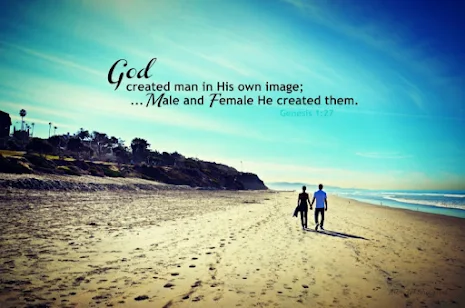
The encounter between Jesus and a leper as narrated by Mark is full of edifying yet challenging message for us today. It is crucial to remember that in the time of Jesus, lepers were ostracized, lived in painful isolation, both physically and psychologically. Leprosy was not only perceived as a contagious ailment but also often viewed as a manifestation of one’s sins.
Indeed, certain biblical passages support this perception. For instance, Miriam was afflicted with leprosy for speaking against Moses (cf. Numbers 12), and King Uzziah contracted the disease because of his pride and sacrilege (2 Chronicles 26). Scriptures provides us with detailed guidelines on diagnosing leprosy and the rituals for purifying one who is cured, suggesting that healing from leprosy symbolized a cleansing both inside and out.
Jesus, in his boundless compassion, ventured into the segregated spaces to meet the leper. Upon encountering Jesus, the leper demonstrated profound humility and faith, kneeling and earnestly appealing, “If you wish, you can make me clean.” This act of kneeling symbolizes deep humility. His prayer was succinct yet powerful. It is a testament to his unwavering belief in Jesus' healing power. He approached Jesus not with the spirit of entitlement but with a heart full of humility and faith. In the leper’s prayer and faith, we can learn the prayer that moves the heart of God. When we approach God with such attitude of humility and faith, miracles happen. Confronted with such devout faith, Jesus was deeply moved.
In his response, Jesus exemplified the essence of sacramental ministry in the Catholic tradition: a blend of words and actions. His decision to physically touch the leper was revolutionary, because he broke the Old Testament taboo that prohibits contact with lepers. Jesus’ gesture illustrates God's desire to be intimately involved in our lives, especially in times of suffering or exclusion. Jesus’ words, “I do will it. Be made clean, And immediately the leprosy left him, and he was made clean," shows how ready God is to transform our lives whenever He finds a faith that is so humble and strong.
The Leper’s faith teaches us that we should always seek the will of God in everything we do. For this is the secret to happiness, spiritual growth, and harmonious living. Jesus himself, in the critical hours in the garden of Gethsemane, sought the Father’s Will above his own saying “My Father, if it be possible, let this cup pass from me; nevertheless, not as I will, but as you will.” (cf. Luke 2: 39-46). If we believe that as Jesus said, “with God nothing is impossible,” (Luke 1:37) then we will agree here that the most important thing in faith is God’s will. Jesus thought us to pray to God our Father saying: “Thy Will be done on earth as it is in heaven”.
So, we can receive this Gospel as exhortation to always seek to surrender to God’s will in our lives. Of course, discernment is necessary to be able to know, among numerous possibilities, what is God’s will for us in general and in specific situations. The Word of God, as reveled in the Bible and interpreted within the community of believers under the inspiration of the Holy Spirit helps us in this spiritual journey.
Let us
pray to have a faith akin to that of the leper: humble yet resolute, wholly
surrendering to eternal will of God, who desires only the best for us, His children.
Moment of Prayer:
Heavenly Father, we thank you for the gift of your word. As we embrace this new day, we humbly approach you with humble heart as we seek inspiration from the encounter between Jesus and the leper.
Like him, we kneel in our vulnerability, acknowledging our own imperfections and the isolation they sometimes bring. Yet, in Your boundless compassion, You reach out to touch and heal us, breaking the barriers of our afflictions.
Lord, grant us the courage to seek Your will in every aspect of our lives, as Jesus did in His most trying hour. May we embrace Your divine plan with trust, knowing that in Your wisdom, You guide us towards paths of healing and wholeness.
Teach us to approach You with a faith as sincere and decisive as the leper's, never doubting Your power to transform our lives. Help us to remember that with You, nothing is impossible, and that Your love is the ultimate source of our healing and redemption.
We surrender to Your will, O God, trusting that You always desire what is best for us, Your children. Lead us in Your ways and fill our hearts with the peace and joy that comes from knowing and serving You.
Through Jesus Christ, our Lord, Amen.🙏🙏🙏









